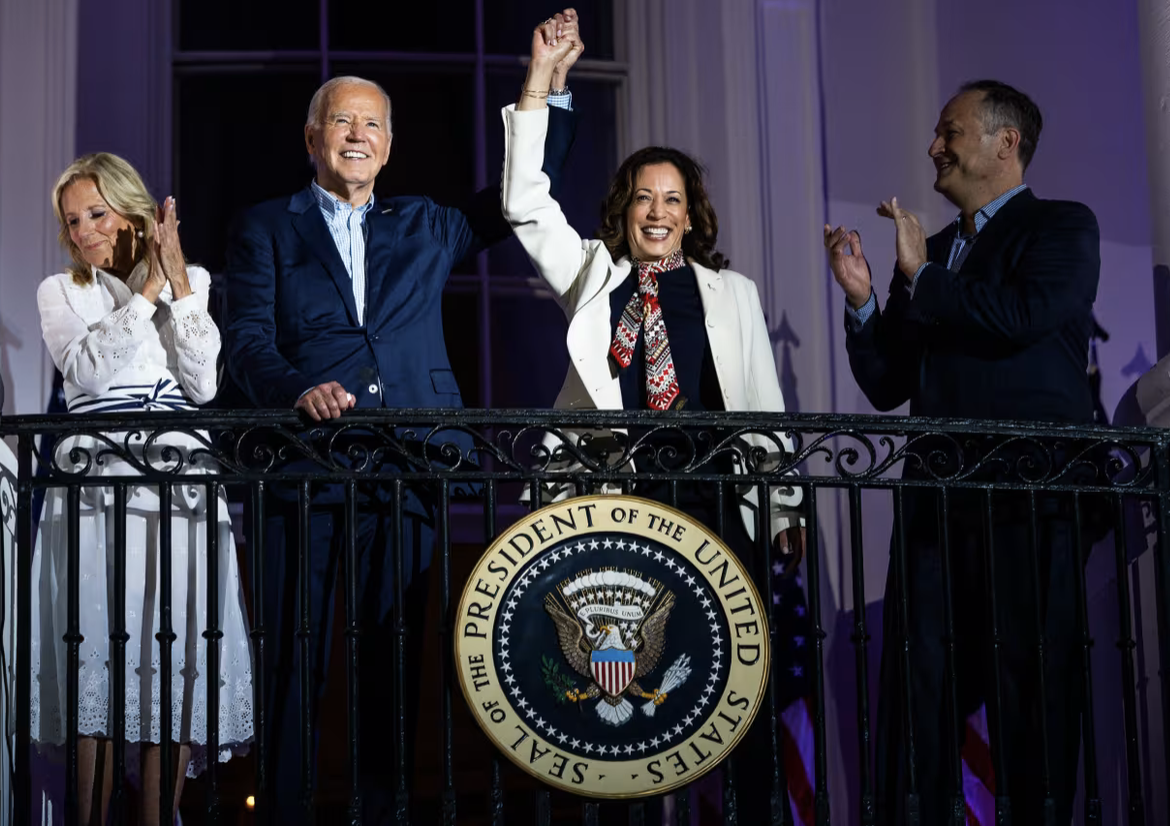By: Charlie Spies – wsj.com – July 8, 2024
He can’t legally shift his campaign war chest to Harris until he’s the official Democratic nominee.
Democrats are in a panic. President Biden’s disastrous debate performance has members of his own party debating whether and how to move him off the ticket. The more important question might be when.
Campaign finance rules create an incentive for Mr. Biden to stay in the race through the Democratic National Convention in August. At that point, but not before, Mr. Biden would be able to transfer his campaign’s anticipated $100 million war chest to Vice President Kamala Harris, assuming that she, too, is still on the ticket.
If Mr. Biden drops out before the Democratic Party formally makes him its nominee, then Federal Election Commission rules dictate that no more than $2,000 of any campaign funds that he raised may be transferred to any other candidate, including Ms. Harris. The Federal Election Campaign Act governs what a presidential campaign may do with “excess campaign funds,” which is what the money left in the Biden for President campaign will legally be considered if he is no longer a candidate. Those excess funds may be contributed in an unlimited amount to the Democratic National Committee or an independent expenditure committee. Presidential campaigns may also contribute such funds to other federal campaigns, subject to contribution limits, which are $2,000 per election.
In short: Before the nomination officially goes to Mr. Biden, his campaign is limited to donating $2,000 to the Democratic nominee, whether that new standard bearer is Gavin Newsom, Gretchen Whitmer or Ms. Harris.
Some Democratic election lawyers have asserted that if Mr. Biden drops out now, all his funds could go to a new Harris campaign. That’s incorrect. In September 2012, the Romney for President campaign added running mate Paul Ryan to its FEC Form 1, indicating on Line 5 that it was the principal campaign committee for the Republican Party’s nominees for president and vice president. If Mr. Romney had dropped out of the race after that point, then 11 CFR Sec. 103.4 would have controlled, providing that the “campaign depository designated by the principal campaign committee of a political party’s candidate for president shall be the campaign depository for that political party’s candidate for the office of Vice President.”
Importantly, and unlike the Romney-Ryan example, Mr. Biden isn’t currently the Democratic Party’s candidate for president, and Ms. Harris isn’t currently her party’s candidate for vice president. They can fairly be called their party’s presumptive nominees, but that is a title with no legal status in federal election law. Standard contribution limits apply.
In August 2023 the Biden for President campaign amended its FEC Form 1 to assert on Line 5 that the committee was the principal campaign committee for both Mr. Biden and Ms. Harris. At the time nobody had reason to question that maneuver, and if at the Democratic convention Mr. Biden and Ms. Harris emerge as their party’s nominees, then there won’t be a need to challenge the premature designation. If, however, Mr. Biden were to drop out before being nominated and attempt an unprecedented and possibly illegal unlimited transfer of funds to Ms. Harris, the courts would likely interpret the plain language of the statute to prohibit such a contribution. Such legal review will start at the FEC, but the Supreme Court’s recent decisions in Loper Bright Enterprises v. Raimondo andRelentless Inc. v. Department of Commerce to dispense with agency deference could mean a quick test of judicial willingness to enforce a federal statute.
If President Biden is committed to passing the torch to his vice president, and wants to be able to seed her campaign with the current Biden for President campaign war chest, he’ll first have to become his party’s legal nominee. After shuffling through the Democratic National Committee’s planned roll call vote he’d be free to drop out. Ms. Harris could seamlessly slip into the driver’s seat. That’s a risky strategy, as it requires maintaining an obvious fiction under intense public scrutiny for another six weeks.
Mr. Biden insists he will stay in the race. Does he really mean it? Even if he doesn’t, the Democratic Party has a strong financial incentive to play along.
To see this article in its entirety and to subscribe to others like it, please choose to read more.
 Listen Online
Listen Online Watch Online
Watch Online Find a Station in Your Area
Find a Station in Your Area










 Listen Now
Listen Now Watch Online
Watch Online
